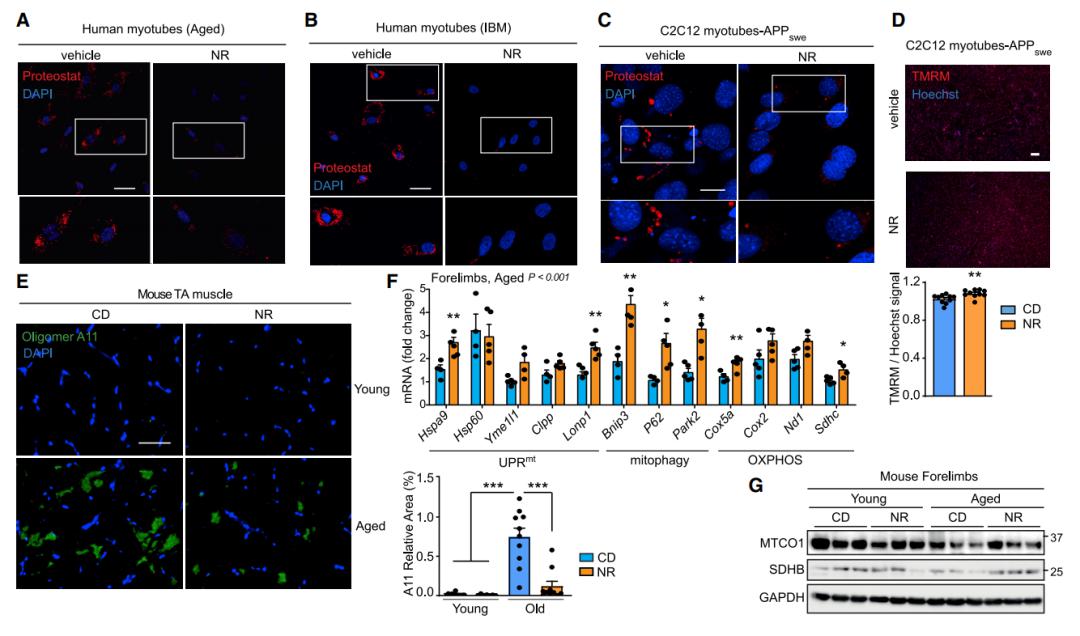
Source:
Release Time: 2021-07-14
931 Views
Recently, the team of Prof. Johan Auwerx from the Federal Institute of Technology Lausanne, Switzerland published a paper in Cell Reports (a sub-Journal of Cell) entitled "NAD+ boosting reduces age-associated amyloidosis and restores mitochondrial homeostasis in muscle". Multi-factor biological processes are characterized by the decline of many cell functions, including mitochondrial dysfunction and protein balance disorders, which ultimately affect body homeostasis. In the process of aging, amyloid aggregation can cause a variety of protein polymerization diseases, such as Alzheimer's disease and polymyositis
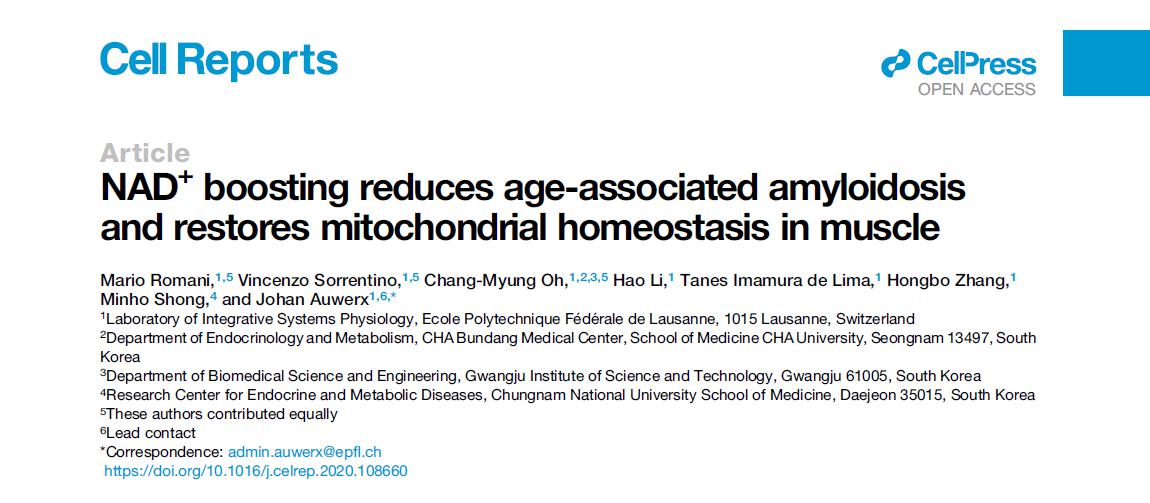
Skeletal muscle atrophy is one of the important signs of aging, which is characterized by the loss of muscle weight and function, the disruption of mitochondrial homeostasis, and the disorder of protein balance. In this article, the researchers found that in the process of natural aging, amyloid aggregates exist in the aging muscle cells of nematodes, mice and human, and affect mitochondrial homeostasis.
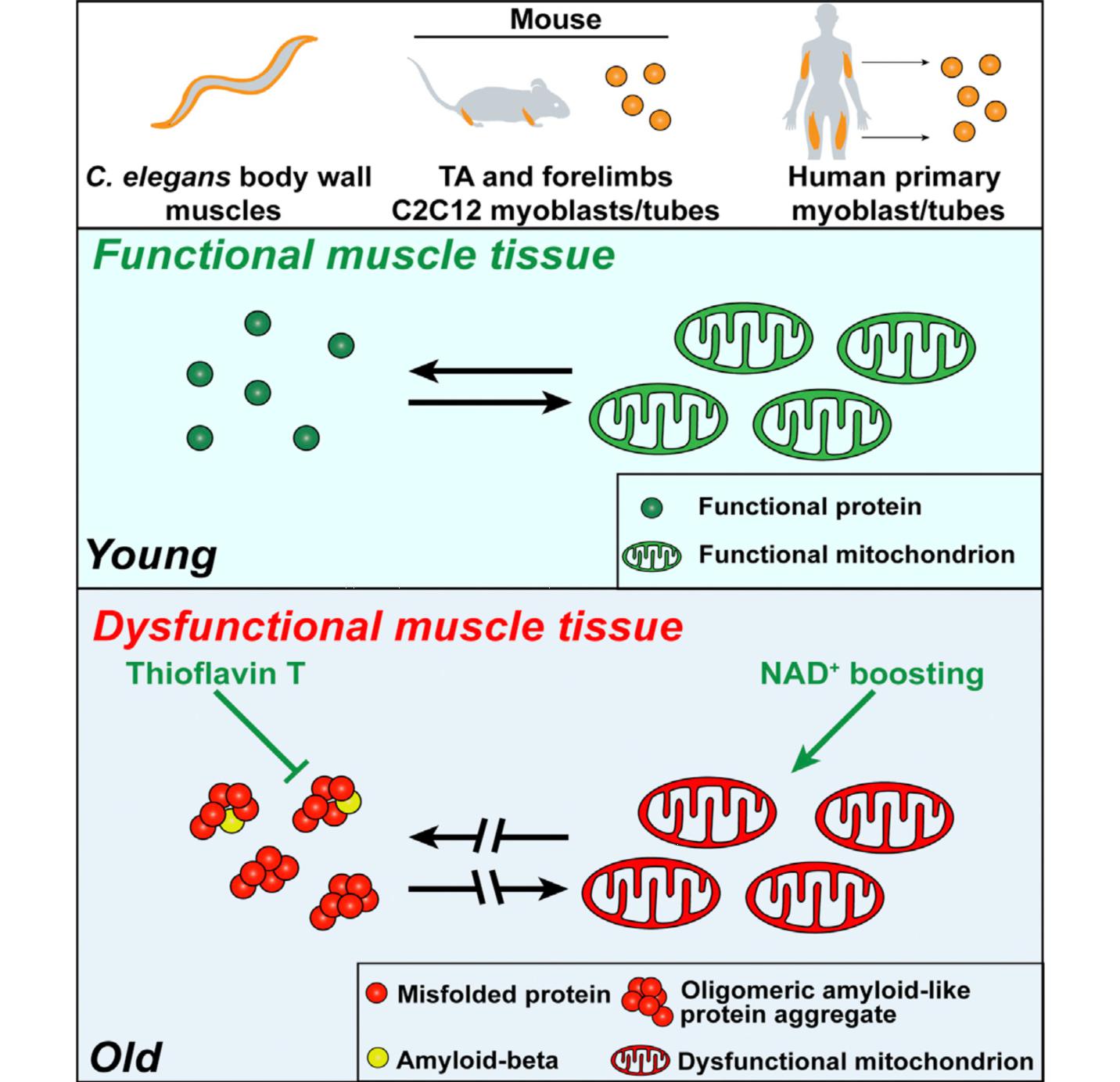
Skeletal muscle atrophy is one of the important signs of aging, which is characterized by the loss of muscle weight and function, the disruption of mitochondrial homeostasis, and the disorder of protein balance. In this article, the researchers found that in the process of natural aging, amyloid aggregates exist in the aging muscle cells of nematodes, mice and human, and affect mitochondrial homeostasis. Subsequently, the researchers increased the levels of nicotinamide adenine dinucleotide (NAD+) in the nematodes and found that NAD+ can significantly reduce age-related amyloid aggregation and improve the health and lifespan of the nematodes. Then, the research team turned its attention to human muscle tissue obtained from elderly subjects and patients with inclusion body myositis (IBM).
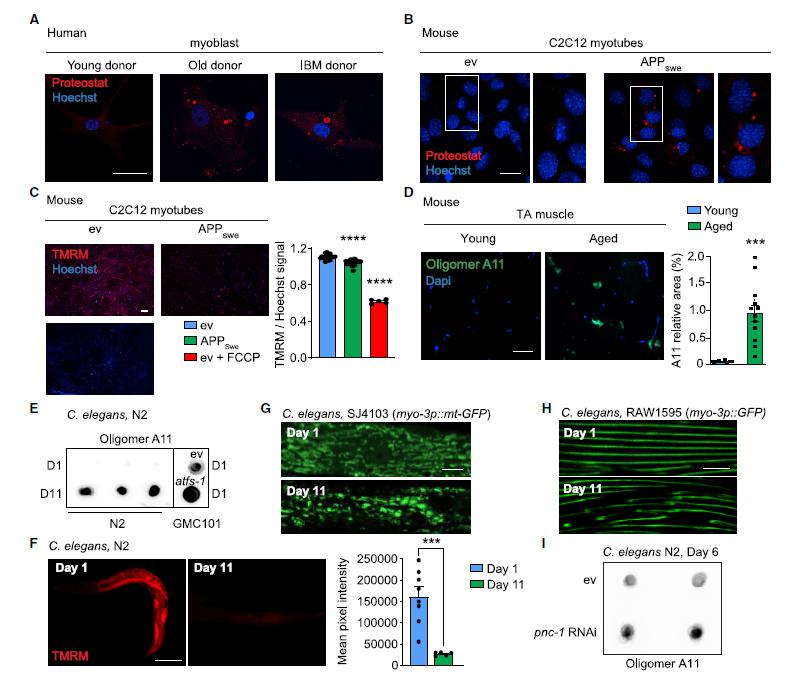
Finally, the researchers also tested the effect of NAD+ on reversing muscle aging in old mice. The results show that increasing the level of NAD+ in mice can also reduce the number and size of amyloid aggregates in different skeletal muscle tissues.
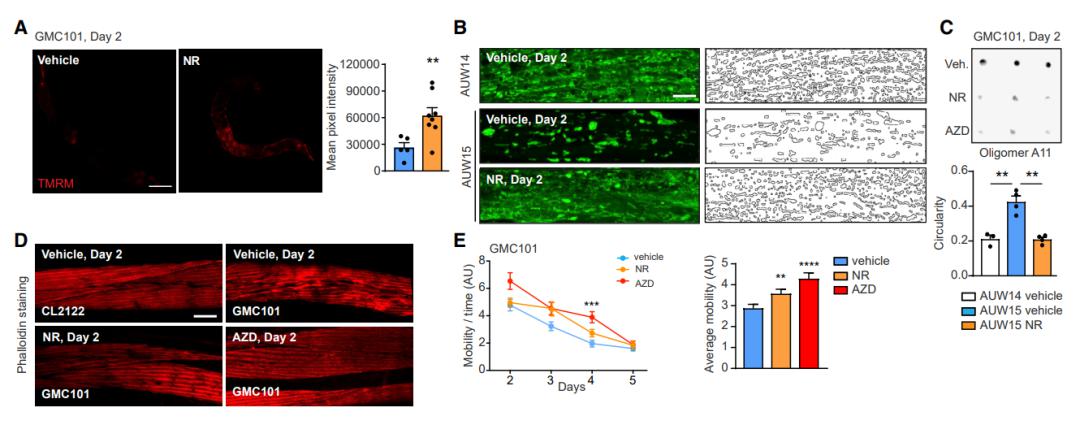
Through this study, the experimenters confirmed that age-related amyloid aggregation and mitochondrial dysfunction are an important contributor to muscle aging. By increasing the concentration of NAD+, muscle aging can be reversed. Based on this study, we can test drugs that improve the quality of mitochondria in future clinical trials to reverse these age-related protein toxic aggregates and rejuvenate muscle tissue.
